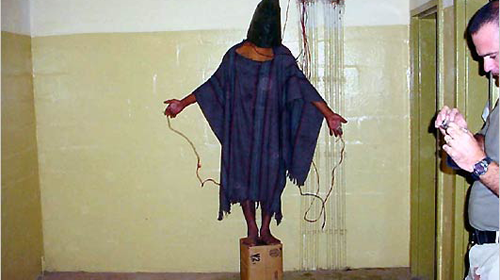



Jameel Jaffer
ANTHONY ROMERO’S DISPATCHES
Aug. 22, Aug. 23, Aug. 24, Aug. 25, Aug. 26, Aug. 27, Aug. 29
NEWS RELEASES
ACLU to Continue Monitoring Military Commissions at Guantánamo Bay as Trials Resume
ACLU Executive Director Travels to Cuba To Observe Military Tribunals
ACLU Director Has Front-Row Seat for Gitmo Tribunals
Joint Statements of Commission Observers Aug. 23 | Aug 27
REPORT
Conduct Unbecoming: Pitfalls in the President’s Military Commissions
SPEECH
Romero Calls Government’s Policies on Guantánamo ‘Fundamentally Lawless’
RELATED DOCUMENTS
Torture Freedom of Information Act
OFFSITE LINK
Military Commissions: Process and Rules

This week, Jameel Jaffer, an ACLU staff attorney, will write his observations about the hearings taking place at the Guantánamo Bay Naval Base. The hearings are part of the new system of military commissions set up by President Bush.
Sunday | Monday | Tuesday | Wednesday
11-02-04 — GUANTÁNAMO BAY, CUBA
Dear member of the ACLU family:
Right now, Guantánamo Naval Base seems very far away from the election going on in the United States. There are restrictions on what members of the military can say in uniform, so there aren’t a lot of public conversations about politics. I haven’t seen any political posters or bumper stickers. And there are no voting booths here, because those who vote do so by absentee ballot. Here at Guantánamo, it would be easy to forget about the election altogether.
This is ironic, because the outcome of the election is likely to have a profound effect on the lives of the 550 or so detainees who are imprisoned here. For the detainees who haven’t been charged with any crime, the election may determine whether they’re afforded a meaningful opportunity to challenge their continued detention. For the handful of detainees who’ve been charged, the election may determine whether they’re tried in traditional courts martial, with all the protections those proceedings entail, or in military commissions like the one that over the last three days has been hearing motions in the case of David Matthew Hicks.
Unfortunately, the hearing that took place in the Hicks case today confirmed what the ACLU and other legal and human rights organizations have been saying from the outset: the military commissions, at least as they’re set up now, are simply not capable of providing anything resembling fair process. Frankly, the commission today did not even seem interested in fair process. The panel members peppered the defense with hostile questions about even the most conservative legal arguments; by contrast, even when the prosecution proposed outlandish interpretations of international law, the panel members just nodded approvingly. The panelists chuckled when the prosecution compared the defense’s complaints about the process – which could result in a life sentence for Mr. Hicks – to a teenage girl’s complaints about her prom date. On two occasions, the Presiding Officer, Col. Peter Brownback, dismissively referred to defense counsel Dan Mori as “sunshine.”
More troubling still, the panelists – two of whom have no legal training, remember – struggled to understand even the most basic legal concepts. One of the charges levied against Hicks is “destruction of property by an unprivileged belligerent.” The defense appropriately moved to dismiss the charge on the grounds that destruction of property is a war crime only if the property is “protected” under the Geneva Conventions; the defense pointed out that the prosecution had not alleged that the destroyed property was protected. Col. Bogdan treated this straightforward argument as frivolous. He asked, “Isn’t the status of the property something we should decide at trial?” But, as any lawyer can tell you, the question of whether a crime has been alleged is certainly not something that should be decided at trial. We don’t subject a person to a criminal trial if the government can’t allege that he’s committed a crime.
It’s astounding that a kangaroo commission like this one has been invested with the authority to decide whether David Hicks spends his life in prison. The likelihood of his being afforded a full and fair trial seems vanishingly small.
Jameel Jaffer
ACLU Staff Attorney
Stay Informed
Sign up to be the first to hear about how to take action.




